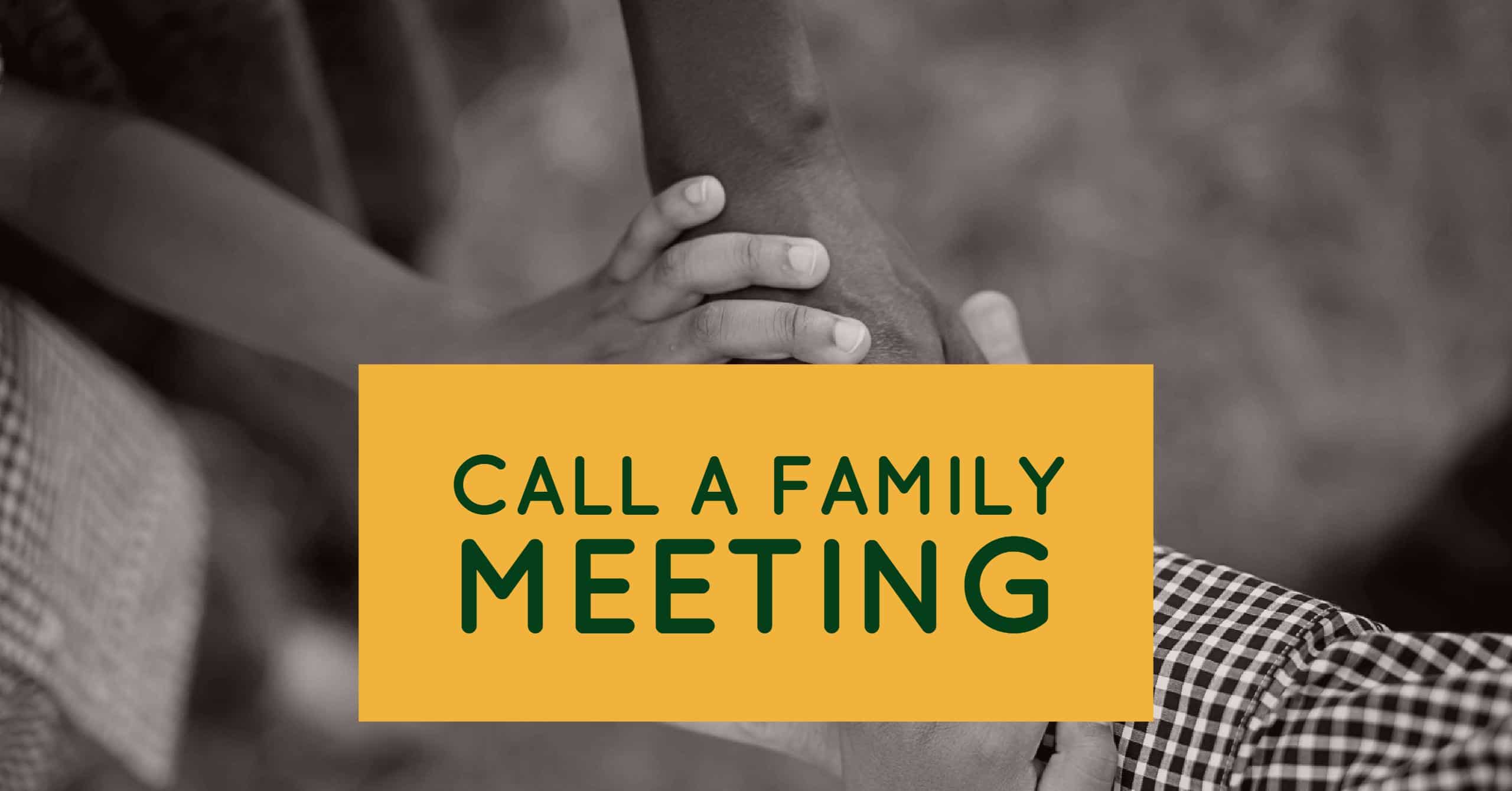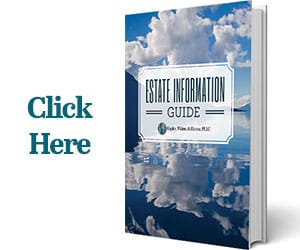There’s a lot to consider when you’re planning your estate. Asset distribution. Health care proxies. Power of attorney. Though you make the decisions, it’s your family who will carry them out. It’s important to meet with them and make sure they understand your wishes.
Managing Your Affairs
Mortality isn’t the easiest topic to address. But planning your estate is more complicated than just deciding who gets what and putting it in a will. There are critical choices to be made about roles and responsibilities in handling your affairs before and after passing.
Your family members are key players in executing your decisions. If they aren’t clear about your choices, you can’t be sure they will support them.
Holding a family meeting may feel daunting, but it’s the smart way to go.
Start by Picking an Advocate
Setting up a family meeting to discuss your final wishes might feel ghoulish or even cruel. The people who love you the most may be the most resistant to the idea. No one likes having conversations about death or loss.
It may be beneficial to approach a one family member first – your spouse or one of your children. The ideal family member would be the person you’ve chosen as the executor of your estate. Your executor works directly with your attorney to manage the details after passing.
Ask for his or her feedback about having a family meeting. Consider these points for the discussion:
- Which family members should participate?
- What’s the best way to announce the meeting and its purpose?
- Will your lawyer be attending?
- Are there any decisions that may be considered controversial by family members? What is the best way to manage that?
Talk about how to frame the meeting positively. Make sure you and your advocate agree on key points and any possible conflicts.
We’ve provided a sample agenda below that you may find useful to keep your meeting on track.
Every family is different and their dynamics unique. You may find little or no resistance to the meeting. You may have to deal with an emotional crowd.
Either way, the importance of sharing your estate plan with your family remains unchanged.
Call the Family Meeting
Choose a time and place for the meeting. Make sure the location has room for everyone and have copies of the agenda for everyone attending. Stress that the meeting is for adults-only.
Decide on how you will let attendees know about the meeting. It might be best to invite everyone at the same time. Briefly, explain the purpose of the meeting and why it’s important.
If you are in good health, you may want to reassure your family of that fact, so they don’t worry needlessly. Younger families, in particular, might be startled by the meeting’s topic.
Estate planning isn’t just about your final wishes. It’s also about making sure your family is provided for after you’re gone.
Remember the goal here is to make sure your family is aware of your decisions so they will be respected. Not everyone has to agree with your choices, but they need to agree that the choices are yours to make.
Your advocate should feel free to voice his or her support for your decisions.
Having your attorney at the meeting is a good choice to clarify any legal questions your family may have and also document the discussion in the event of conflicts after the fact.
Sample Agenda:
- Advance Health Directives: These involve choices related to healthcare. They can be difficult for families to respect and follow. It’s best to get this discussion out the way when everyone is fresh. The documents might include:
- Do Not Resuscitate (DNR)
- Living Will
- Health Care Proxy
- Health Care Power of Attorney
Typically Estate Planning can be an emotional topic. Leave time for discussion.
- Estate Structure: This includes a brief explanation of the legal structure of your estate. Depending on your circumstances, the discussion might include:
- Last Will & Testament
- Living Trust
- Family Trust
Take the opportunity to identify the executor of your estate and trustees.
- Asset Distribution: If you choose, you can explain the basic structure of asset distribution. We recommend you keep it high level – e., All the children receive an equal share of equity in the house. Possible topics for discussion:
- Spousal Provisions
- Charitable Donations
- Business Provisions (if you own a company)
- Children/Grandchildren
Much of this discussion is dependent on the dynamics of your family and how you’ve chosen to distribute your assets. (You may also use this time to discuss specific bequests – i.e., sentimental).
- Supplemental Assets: You may decide to let your family know of any additional revenue that will revert to your estate.
- Life Insurance Policies
- Investment Portfolio
The sole purpose of this topic is to make sure the family knows about your insurance and investments, as well as where to get the contact information.
- Funeral Services: This is less of a discussion and more of an announcement. Let people know your preferences for services and make them aware of any cemetery plot you’ve purchased.
Keep this simple. Make sure there is a document with your preferences if they are not included in your will.
- Closing Summary: Remind everyone that you have given careful thought to your decisions and ask that they are followed. Stress the importance of taking care of each other.
Why Family Meetings Work
The last thing any grieving family needs is a feud. Unfortunately, they can happen far too frequently.
The benefits from a family meeting can’t be overstated:
- There are no surprises about asset distribution.
- There is no question that you were of sound mind when making your decisions.
- Your choices related to healthcare while living has been articulated.
Your family will need to execute your decisions during a highly emotional time. When everyone is on the same page, it makes it easier to move forward without conflict or dispute.
Just a Reminder
You don’t have to wait until you’re on your deathbed to hold a family meeting about your estate. In fact, it’s not a bad idea to revisit them on a regular basis. Things change over time, and it’s important to keep your documents updated and your family too.
- Make sure insurance beneficiaries are up to date.
- If there’s a been a death in the family, you may need to update your will.
- Clarify the impact of any significant changes in income or assets.
- If there are new family members – a change in a spouse, son-in-law, a new child or grandchild.
Plan on holding another family meeting every few years. That keeps your family aware of what’s changed and what hasn’t.



